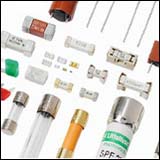 Illinois-based Littlefuse, Inc., which, not surprisingly, makes fuses, filed a voluntary disclosure with the Bureau of Industry and Security (“BIS”) relating to 37 unlicensed exports, worth $90,017.96, to the Philippines (presumably its own manufacturing facility there.) In return for its efforts, BIS wrangled an agreement from the company to pay a $180,000 fine. Yes, I know that BIS could have fined Littlefuse 100 Billion Dollars (more accurately, 9.25 million dollars, at $250,000 per export), but twice the value of the exports seems exorbitant where there is no evidence that Littlefuse knew of and intentionally ignored the license requirement.
Illinois-based Littlefuse, Inc., which, not surprisingly, makes fuses, filed a voluntary disclosure with the Bureau of Industry and Security (“BIS”) relating to 37 unlicensed exports, worth $90,017.96, to the Philippines (presumably its own manufacturing facility there.) In return for its efforts, BIS wrangled an agreement from the company to pay a $180,000 fine. Yes, I know that BIS could have fined Littlefuse 100 Billion Dollars (more accurately, 9.25 million dollars, at $250,000 per export), but twice the value of the exports seems exorbitant where there is no evidence that Littlefuse knew of and intentionally ignored the license requirement.
Interestingly, the charging documents accuse Littlefuse of exporting a “liquid crystal polymer” classified as ECCN 1C008.b to the Philippines. Unfortunately, the ECCN in question only controls “liquid crystal copolymers.” “What’s a little ‘co’ among friends?” you may ask. Polymer, copolymer, schmopolymer. Actually, there is a difference. A copolymer is “a polymer derived from two (or more) monomeric species, as opposed to a homopolymer where only one monomer is used.” So, whereas all copolymers are polymers, not all polymers are copolymers. In other words, exporting a “liquid crystal polymer” is not necessarily a violation of the rules.
BIS expects exporters to have sufficient sophistication to understand and apply the technical terminology of the Commerce Control List with substantial penalties imposed for failure to do so. That is not such a reasonable expectation when the agency itself appears not to understand the relevant terminology used by its own control list.
 Permalink
Permalink
Copyright © 2012 Clif Burns. All Rights Reserved.
(No republication, syndication or use permitted without my consent.)

 Posted by
Posted by  Category:
Category: 

